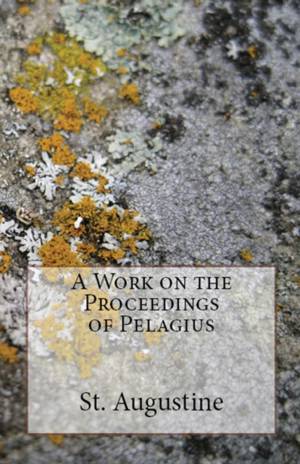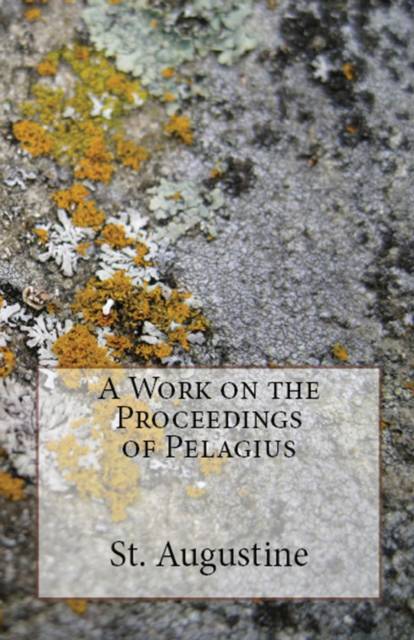
- Retrait gratuit dans votre magasin Club
- 7.000.000 titres dans notre catalogue
- Payer en toute sécurité
- Toujours un magasin près de chez vous
- Retrait gratuit dans votre magasin Club
- 7.000.0000 titres dans notre catalogue
- Payer en toute sécurité
- Toujours un magasin près de chez vous
Description
"About the same time, in the East (that is to say, in Palestinian Syria), Pelagius was summoned by certain catholic brethren before a tribunal of bishops, and was heard on his trial by fourteen prelates, in the absence of his accusers, who were unable to be present on the day of the synod. On his condemning the very dogmas which were read from the indictment against him, as assailing the grace of Christ, they pronounced him to be a catholic. But when the Acts of this synod found their way into our hands, I wrote a treatise on them, to prevent the idea gaining ground that, because he had been in a manner acquitted, his opinions also were approved by the bishops; or that the accused could by any chance have escaped condemnation at their hands, unless he had condemned the opinions charged against him. This treatise of mine begins with these words: 'After there came into my hands.'"
Spécifications
Parties prenantes
- Auteur(s) :
- Traducteur(s):
- Editeur:
Contenu
- Nombre de pages :
- 102
- Langue:
- Anglais
- Collection :
- Tome:
- n° 12
Caractéristiques
- EAN:
- 9781643730219
- Date de parution :
- 29-07-18
- Format:
- Livre broché
- Format numérique:
- Trade paperback (VS)
- Dimensions :
- 140 mm x 216 mm
- Poids :
- 127 g

Les avis
Nous publions uniquement les avis qui respectent les conditions requises. Consultez nos conditions pour les avis.






